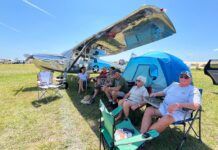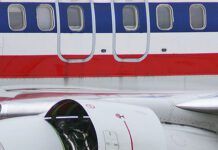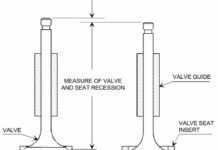Engine In Same Family As Mustang’s…
 As AVweb speculated two months ago, the Eclipse 500 and Cessna Mustang will use derivatives of the same engine. Eclipse Aviation announced Wednesday that Pratt and Whitney Canada (PWC) will build the engines for the five-place 500. The announcement comes three months after Eclipse terminated a contract with Williams International to supply power to the mini-jet. A month later, Cessna announced PWC would build the Model 615, a small engine developing 1350 pounds of thrust, for the Mustang. Eclipse CEO Vern Raburn told AVweb Wednesday the engine for his company’s airplane will be designated the 610, a smaller version of the same engine, developing 900 pounds of thrust. Raburn said Eclipse is delighted to be working with Montreal-based PWC. “Pratt and Whitney Canada is the gold standard in engine manufacturers,” he said. Raburn said many customers have e-mailed him endorsing the choice, even though it will mean the airplane will be delayed two years and its price is going up to between $950,000 and $1.2 million, depending on when the plane is purchased. Since abandoning the deal with Williams, Eclipse maintained it was dealing with two engine manufacturers. Raburn declined to identify the loser in the Eclipse competition. He did, however, applaud PWC’s recognition of and commitment to the mini-jet market with the development of a new family of engines. The 610 isn’t even off the drawing board yet and won’t be certified until 2006, but Raburn said that won’t halt development of the 500. The prototype will be off the ground soon sporting a couple of Teledyne drone engines.
As AVweb speculated two months ago, the Eclipse 500 and Cessna Mustang will use derivatives of the same engine. Eclipse Aviation announced Wednesday that Pratt and Whitney Canada (PWC) will build the engines for the five-place 500. The announcement comes three months after Eclipse terminated a contract with Williams International to supply power to the mini-jet. A month later, Cessna announced PWC would build the Model 615, a small engine developing 1350 pounds of thrust, for the Mustang. Eclipse CEO Vern Raburn told AVweb Wednesday the engine for his company’s airplane will be designated the 610, a smaller version of the same engine, developing 900 pounds of thrust. Raburn said Eclipse is delighted to be working with Montreal-based PWC. “Pratt and Whitney Canada is the gold standard in engine manufacturers,” he said. Raburn said many customers have e-mailed him endorsing the choice, even though it will mean the airplane will be delayed two years and its price is going up to between $950,000 and $1.2 million, depending on when the plane is purchased. Since abandoning the deal with Williams, Eclipse maintained it was dealing with two engine manufacturers. Raburn declined to identify the loser in the Eclipse competition. He did, however, applaud PWC’s recognition of and commitment to the mini-jet market with the development of a new family of engines. The 610 isn’t even off the drawing board yet and won’t be certified until 2006, but Raburn said that won’t halt development of the 500. The prototype will be off the ground soon sporting a couple of Teledyne drone engines.
…Eclipse Customers Trading Positions…
 Raburn insisted that the engine switch has made most of those who have shelled out more than $150,000 to reserve an Eclipse even more loyal to the program. But for those who are having second thoughts, the company has given them two ways to bow out. Because the company failed to meet its schedule and price guarantees, any Eclipse position-holder is entitled to a full refund of the deposit. But the company is also allowing customers to sell their positions, either on the open market or amongst themselves, until March 7. Raburn said about 5 percent of the reserved spots on about 1,500 aircraft are available, but he predicts they’ll all be snapped up before the deadline. The most coveted are the Platinum positions, which went to the first 160 people to hand over their deposits. Raburn said about 10 are available. The Platinum spots differ from the others because the $950,000 price tag is fixed and not subject to inflation. For others, their price is $950,000 in 2000 dollars and inflation could boost it by as much as 20 percent by the time they get their airplanes. Raburn said the Platinum positions will almost certainly go to current customers who want to move up to the head of the line. An Eclipse position-holder we spoke with says Platinum position-holders are looking for a $100,000 premium on their investments. Raburn said he’s heard of a few Eclipse positions being advertised on eBay but the company is not releasing information on available positions until all existing customers have had a chance to move up if they want to.
Raburn insisted that the engine switch has made most of those who have shelled out more than $150,000 to reserve an Eclipse even more loyal to the program. But for those who are having second thoughts, the company has given them two ways to bow out. Because the company failed to meet its schedule and price guarantees, any Eclipse position-holder is entitled to a full refund of the deposit. But the company is also allowing customers to sell their positions, either on the open market or amongst themselves, until March 7. Raburn said about 5 percent of the reserved spots on about 1,500 aircraft are available, but he predicts they’ll all be snapped up before the deadline. The most coveted are the Platinum positions, which went to the first 160 people to hand over their deposits. Raburn said about 10 are available. The Platinum spots differ from the others because the $950,000 price tag is fixed and not subject to inflation. For others, their price is $950,000 in 2000 dollars and inflation could boost it by as much as 20 percent by the time they get their airplanes. Raburn said the Platinum positions will almost certainly go to current customers who want to move up to the head of the line. An Eclipse position-holder we spoke with says Platinum position-holders are looking for a $100,000 premium on their investments. Raburn said he’s heard of a few Eclipse positions being advertised on eBay but the company is not releasing information on available positions until all existing customers have had a chance to move up if they want to.
…Safire Goes With Williams
 Eclipse wasn’t the only manufacturer making engine noise on Wednesday. Safire Aircraft announced its personal jet will be powered by the Williams FJ33, and may be the first personal jet to hit the market. Safire notes that the engine, which is a derivative of the FJ44 used in some other business jets, will be certified by the end of the year and that the first prototype will fly in early 2004, allowing first customer deliveries early in 2006. “Immediate availability of FJ33 for our aircraft flight test certification programs coupled with anticipated FAA engine certification in December 2003 provides Safire with a significant first-to-market advantage,” said Safire CEO Camilo Salomon. The FJ33 chosen by Safire will produce 1,100 pounds of thrust and comes with dual-channel full authority digital engine control. They’ll come with a three-year, 1,500-hour warranty. Michael Margaritoff, founder of Safire Aircraft, said the company went with a proven design because past experience has shown that new aircraft incorporating unproven engines have rarely been successful. He said the Williams FJ44 has been a proven performer and the “conservative derivative approach” in developing the FJ33 will help ensure the smaller engine will be successful.
Eclipse wasn’t the only manufacturer making engine noise on Wednesday. Safire Aircraft announced its personal jet will be powered by the Williams FJ33, and may be the first personal jet to hit the market. Safire notes that the engine, which is a derivative of the FJ44 used in some other business jets, will be certified by the end of the year and that the first prototype will fly in early 2004, allowing first customer deliveries early in 2006. “Immediate availability of FJ33 for our aircraft flight test certification programs coupled with anticipated FAA engine certification in December 2003 provides Safire with a significant first-to-market advantage,” said Safire CEO Camilo Salomon. The FJ33 chosen by Safire will produce 1,100 pounds of thrust and comes with dual-channel full authority digital engine control. They’ll come with a three-year, 1,500-hour warranty. Michael Margaritoff, founder of Safire Aircraft, said the company went with a proven design because past experience has shown that new aircraft incorporating unproven engines have rarely been successful. He said the Williams FJ44 has been a proven performer and the “conservative derivative approach” in developing the FJ33 will help ensure the smaller engine will be successful.
As AVweb speculated two months ago, the Eclipse 500 and Cessna Mustang will use derivatives of the same engine. Eclipse Aviation announced Wednesday that Pratt and Whitney Canada (PWC) will build the engines for the five-place 500. The announcement comes three months after Eclipse terminated a contract with Williams International to supply power to the mini-jet. A month later, Cessna announced PWC would build the Model 615, a small engine developing 1350 pounds of thrust, for the Mustang. Eclipse CEO Vern Raburn told AVweb Wednesday the engine for his company’s airplane will be designated the 610, a smaller version of the same engine, developing 900 pounds of thrust. Raburn said Eclipse is delighted to be working with Montreal-based PWC. “Pratt and Whitney Canada is the gold standard in engine manufacturers,” he said. Raburn said many customers have e-mailed him endorsing the choice, even though it will mean the airplane will be delayed two years and its price is going up to between $950,000 and $1.2 million, depending on when the plane is purchased. Since abandoning the deal with Williams, Eclipse maintained it was dealing with two engine manufacturers. Raburn declined to identify the loser in the Eclipse competition. He did, however, applaud PWC’s recognition of and commitment to the mini-jet market with the development of a new family of engines. The 610 isn’t even off the drawing board yet and won’t be certified until 2006, but Raburn said that won’t halt development of the 500. The prototype will be off the ground soon sporting a couple of Teledyne drone engines.
Raburn insisted that the engine switch has made most of those who have shelled out more than $150,000 to reserve an Eclipse even more loyal to the program. But for those who are having second thoughts, the company has given them two ways to bow out. Because the company failed to meet its schedule and price guarantees, any Eclipse position-holder is entitled to a full refund of the deposit. But the company is also allowing customers to sell their positions, either on the open market or amongst themselves, until March 7. Raburn said about 5 percent of the reserved spots on about 1,500 aircraft are available, but he predicts they’ll all be snapped up before the deadline. The most coveted are the Platinum positions, which went to the first 160 people to hand over their deposits. Raburn said about 10 are available. The Platinum spots differ from the others because the $950,000 price tag is fixed and not subject to inflation. For others, their price is $950,000 in 2000 dollars and inflation could boost it by as much as 20 percent by the time they get their airplanes. Raburn said the Platinum positions will almost certainly go to current customers who want to move up to the head of the line. An Eclipse position-holder we spoke with says Platinum position-holders are looking for a $100,000 premium on their investments. Raburn said he’s heard of a few Eclipse positions being advertised on eBay but the company is not releasing information on available positions until all existing customers have had a chance to move up if they want to.
Eclipse wasn’t the only manufacturer making engine noise on Wednesday. Safire Aircraft announced its personal jet will be powered by the Williams FJ33, and may be the first personal jet to hit the market. Safire notes that the engine, which is a derivative of the FJ44 used in some other business jets, will be certified by the end of the year and that the first prototype will fly in early 2004, allowing first customer deliveries early in 2006. “Immediate availability of FJ33 for our aircraft flight test certification programs coupled with anticipated FAA engine certification in December 2003 provides Safire with a significant first-to-market advantage,” said Safire CEO Camilo Salomon. The FJ33 chosen by Safire will produce 1,100 pounds of thrust and comes with dual-channel full authority digital engine control. They’ll come with a three-year, 1,500-hour warranty. Michael Margaritoff, founder of Safire Aircraft, said the company went with a proven design because past experience has shown that new aircraft incorporating unproven engines have rarely been successful. He said the Williams FJ44 has been a proven performer and the “conservative derivative approach” in developing the FJ33 will help ensure the smaller engine will be successful.


































